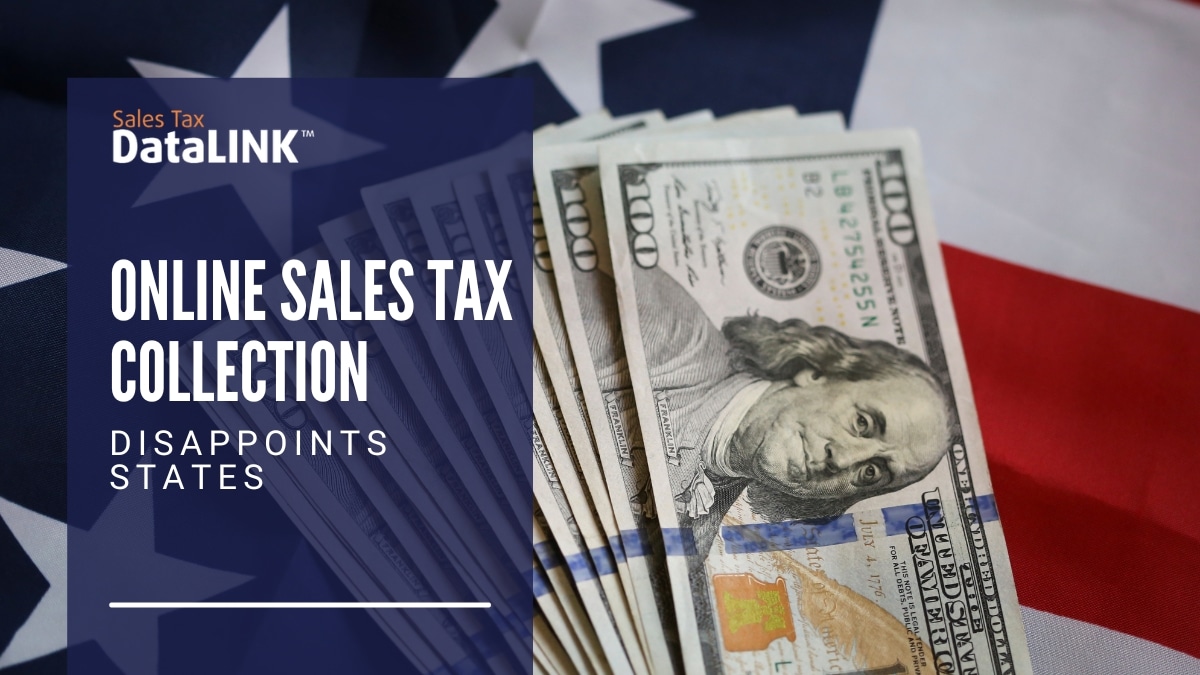Online Sales Tax Disappoints
States were understandably excited when the Supreme Court decided to allow them to force sales tax compliance for remote sellers. The National Conference of State Legislatures said that states were leaving a lot of money on the table — the taxes on $25.9 billion sold in their states by businesses in other states. The Government Accountability Office put the untaxed sales at $8.5–13.4 billion.
There’s a big difference between those two numbers, of course, but either way, it looked like a lot of money.
The National Taxpayer’s Union Foundation has published a new study, however, that makes the difference between those two estimates seem minor. NTUF gathered data from 32 states that are now requiring out-of-state companies to collect sales tax. Not a single state was collecting the amount of money the National Conference of State Legislatures predicted they would. Only two states hit the midpoint of the GAO predictions.
On average, each state expects to collect just 0.7 percent of general fund revenue.
Why are the predictions so far off?
NTUF has a couple of suggestions to explain the inaccuracy of these predictions. For one thing, e-commerce is the growth area when it comes to retail, but it’s still just 10% of purchases. The new predictions were just too optimistic when they guessed what sales might be.
Perhaps more important, they weren’t considering how much of online sales were already collecting sales taxes. Amazon, which was already collecting sales tax pretty much everywhere when the Supreme Court Wayfair decision came along, accounts for about one-quarter of all online sales. Walmart and other large retailers carve out another big chunk of e-commerce sales.
Then there are the small Mom and Pop e-commerce shops that don’t meet the threshold for sales tax compliance. Between the big chains that already had physical nexus and the small companies that don’t meet the thresholds is a relatively thin layer of remote sellers who need to comply with new sales tax laws.
Don’t forget the companies that are supposed to comply but don’t. A Quickbooks study found that 30% of small businesses didn’t even know about these important legal changes, while more than half didn’t have a clear understanding of their sales tax responsibilities.
Finally, there are the businesses that have decided not to sell outside their state, because it seems too complicated.
What’s the outcome?
With one thing and another, states just aren’t collecting that much from remote sellers.
Are they drawing back and requiring fewer out-of-state companies? No. In fact, one thing states seem to be doing to make up for the lack of revenue is increasing the number of audits they’re performing.
There have of course been costs involved in making these sales tax law changes. The lower-than-expected revenue collection stacked up against those costs has led to some strong reactions. Many states are expected to get more aggressive with their audits.
What’s the solution?
The best solution: get into compliance as quickly as possible. The best strategy? Contact us to see how Sales Tax DataLINK can make sales tax compliance easy for your company. Working not just with retail but also with manufacturers, construction companies, and many more industries affected by Wayfair, Sales Tax DataLINK offers expert advisement, sensible software solutions, and practical outsourcing options. Call (479) 715-4275 to talk to a sales tax expert.




